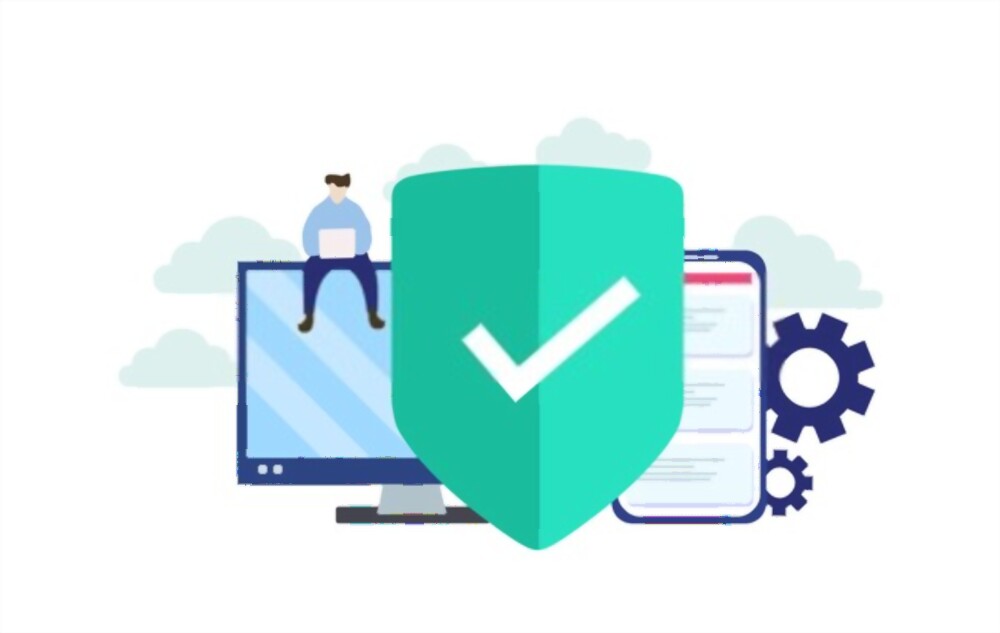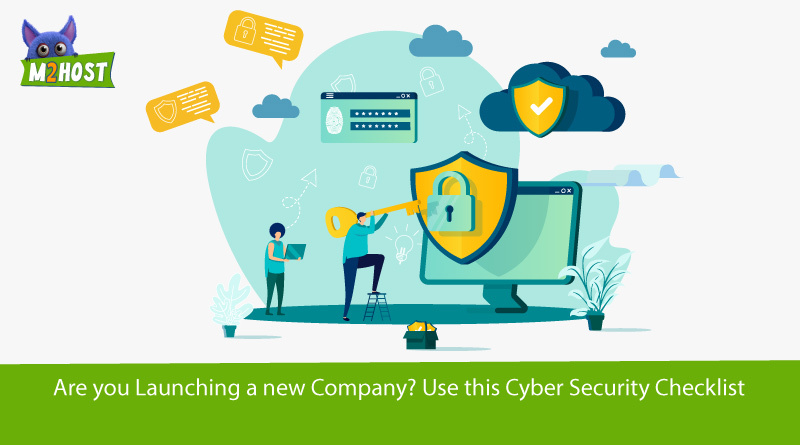Cyber security checklists can be difficult to decide which areas of your business to emphasize when you’re starting. First, you must perfect your offerings and establish a solid financial foundation. After this, you may start planning the specifics of your business, such as an office space, marketing strategy, and clientele.
One of the first things every company that relies significantly on technology to function should do is develop a comprehensive cyber security checklist. This is because there has been an increase in cyber security checklists, and if hackers manage to breach your defenses, they can cause serious damage to your company. Cyber security checklist is also worth noting that if your systems aren’t adequately protected, you may be subject to a hefty charge under the new General Data Protection Regulations (GDPR) that went into effect in 2018.
A cyber security checklist can be challenging to determine if you’ve covered all your bases as a new business owner because you have so much on your plate already. Utilizing the following checkpoints, you can ascertain if your company’s cyber security checklist policy is sufficient or if further work needs to be done.

The Importance of Cyber security checklist
However, before we go into what you need to do, it’s vital to define a cyber security checklist and discuss why it’s so crucial. To put it accurately, it’s the practice of using hardware, software, and networks to prevent hackers from gaining access to a company’s information systems. Protecting your private data and those of your clients from intruders like hackers is the primary goal of any robust security infrastructure.
To avoid a hefty fee, your company must follow the General Data Protection Regulations (GDPR) that was enacted in 2018, making a strong cyber security checklist even more crucial. All residents of the EU will have their privacy and rights protected by these rules. When consumers or clients entrust you with personal information, it is your duty as a business owner to keep it secure.
People are becoming more aware of the need for cyber security checklists and best practices online as a result of the proliferation of sophisticated hacking tools and sophisticated scams used to steal personal information from the unwary. People are starting to inquire about the security measures used by the companies and services they employ. If you care about your customers’ online security, investing in a robust security system is a great way to express it.
After briefly discussing the cyber security checklist, see below.
Does Your System Have a Firewall and Anti-Malware Protection?
Make sure you’re starting with the correct tools. Each and every one of your PCs and other electronic devices need to have firewall and anti-malware software installed. These protect your information by preventing hackers from accessing it. In addition, they keep tabs on the data flowing across a network and block anyone from entering or leaving a private one. It is important to have anti-virus software installed on your devices and computers in case hackers decide to employ viruses to gain access to or destroy your systems.
Are You Running the Most Recent Software?
It’s great to have these systems in place when you first launch your company, but you shouldn’t let them become stale over time. To ensure that your software is always up-to-date, you can either enable automatic updates or engage a specialist to monitor your systems for you.
Are Your Passwords Secured?
When working with confidential information, it is imperative that all devices and systems be password protected. Passwords should be at least eight characters long, and secure passwords should include a combination of lowercase and uppercase letters, digits, and symbols when applicable. Hackers will have a more difficult time breaking into your network now. The same password should not be used for different websites or devices.
Do you control all your electronic gadgets?
Your new venture could require a large number of desktop PCs, or you and your employees could get by with just mobile devices. Whatever the case may be, you must exercise strict control over any electronic equipment used in the course of your employment. That includes keeping your personal and work gadgets separate, always using strong passwords, and never connecting to unsecured Wi-Fi hotspots. As a result of the foregoing, there is a heightened danger to the cyber security checklist. By instituting policies for company-issued gadgets, you can protect the privacy of company secrets.
Do you have a cohesive group?
This is a major one. You may be well-versed in the cyber security checklist and be taking precautions to safeguard your new company, but if your workforce isn’t on the same page, there could be problems down the road. Teaching employees about cyber security checklist best practices can lessen the likelihood of a breach due to human error. Moreover, your staff must be able to recognize the warning indications of a breach, know who to notify, and be familiar with the process in place to handle the issue as soon as feasible. Cyber security checklist education is beneficial for all employees, regardless of their number or position.

Do you use proper email etiquette?
Strange as it may seem, this question simply asks whether or not you and your team adhere to proper practices while communicating by email. This includes taking precautions against downloading potentially malicious files and never clicking on questionable websites. Do not click on a link in an email from an unknown sender if you cannot verify the sender’s identity. If you’re interested in what a company has to offer, but their marketing or sales materials don’t convince you, you should probably contact them personally. That way, they can verify the legitimacy of the email you received.
Do you back up your information regularly?
You must ensure that you routinely back up all of your data, both locally and in the cloud. This ensures that your information is protected in the event of a data breach, cyber attack, or virus. Data backups (not stored in the cloud) should be stored in a secure location apart from the originals. It’s also important to password-protect any hard drives used for storage. If something goes wrong and you need to completely reinstall your systems, at least your backups will be as up-to-date as possible.
Are All of Your Files Encrypted?
Everything should be backed up, but it’s also a good idea to encrypt everything. The reason is: it’s smart to assume nothing. Protect the data stored on your computers, external discs, and the cloud from prying eyes by encrypting it.
This is wonderful news since it means that even if a device is lost, the data it contains will be safe from cybercriminals. Among the many things you should encrypt are the following:
Emails
Using the Internet to save documents
Forget-me-nots and other storage media
Data Storage: USB Drives
Paperwork (Word, Excel, PowerPoint, PDF)
WhatsApp and other messaging apps
Devices
Storage devices (hard drives)
Software
Smartphones
Do you advocate the use of auto-locking screens?
Setting your devices to lock when it’s not in use and educating your personnel to lock their screen when they’re away from their desks may seem like minor precautions, but they can prevent theft. Those who are not authorized to see the contents of the room could easily wander in and see them. This is especially crucial if you work in a shared office or a public location where people not affiliated with your organization could potentially view the content of your screens.
How Are Your Networks Safe?
A strong defense against cyber-attacks begins with a safe network. Leaving your business vulnerable, using public Wi-Fi or other unprotected networks. The information on these networks is vulnerable to theft or manipulation by hackers. The results of this could be disastrous for your company. Customers will be hesitant to provide personal information to a company they suspect has been hacked, and the hackers may also leak confidential company information. It is, therefore, crucial to implement a safe network infrastructure.
Do You Take Care of the Dangers Associated with Other People?
The employment of outside parties, such as suppliers or service providers, is something that can easily be overlooked. Hackers can use the networks of other companies to gain entry to your own.
Do You Have a Plan for Security Breaches?
You can take every precaution against cybercrime, but in the end, nothing will be able to prevent it. Therefore, it is important to know what to do if your systems are hacked or if you notice strange behavior that may indicate a security breach. You and your team need a solid procedure in place so that in the case of a breach, everyone is aware of what to do and who to notify. Whether you choose to use in-house experts or outsource this work to a third party, you must have a contingency plan in place for handling any security incidents that may arise.
.
How effective is Your Cyber security checklist?
You can see, then, that as a new business owner, a cyber-security checklist is crucial. Putting in the time and effort now to establish a solid foundation will pay off in the long run. The best way to keep your business safe and GDPR compliant is to educate yourself, learn to recognize the warning signs of scams, and make informed decisions. To be sure you’re giving it your all, let’s review the information we just went over.
Listed below is our comprehensive, no-fluff cyber security checklist:
Does your computer have a firewall and anti-malware protection?
Have you updated all of your systems?
Do you make use of robust passwords?
Do you control every gadget in your house?
Is everyone on your team thinking similarly?
Do you maintain proper email hygiene?
Do you back up your files?
Do you encrypt everything?
Do you advocate for the use of auto-lock features?
Are your systems protected?
Can you tell me if you are handling the dangers posed by outside parties?
Is there a plan in place to deal with security issues?
Conclusion
Therefore, the above is a cyber security checklist for your new business. If you answered yes to all of the above, then you should keep going. Small businesses are easy targets for cybercriminals, increasing the financial incentive for such activity. The best approach for a business owner to reduce their network’s vulnerability to assaults of any kind is to ensure that their cyber security checklist is up to date.


